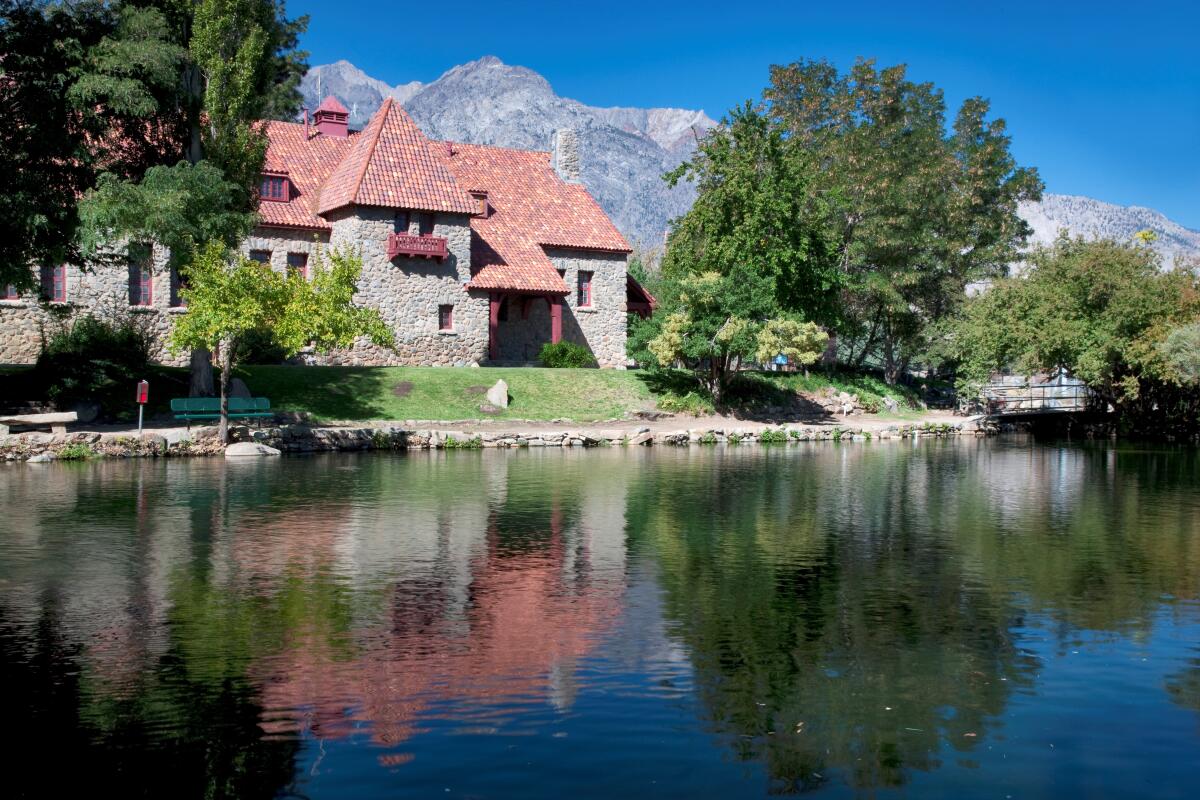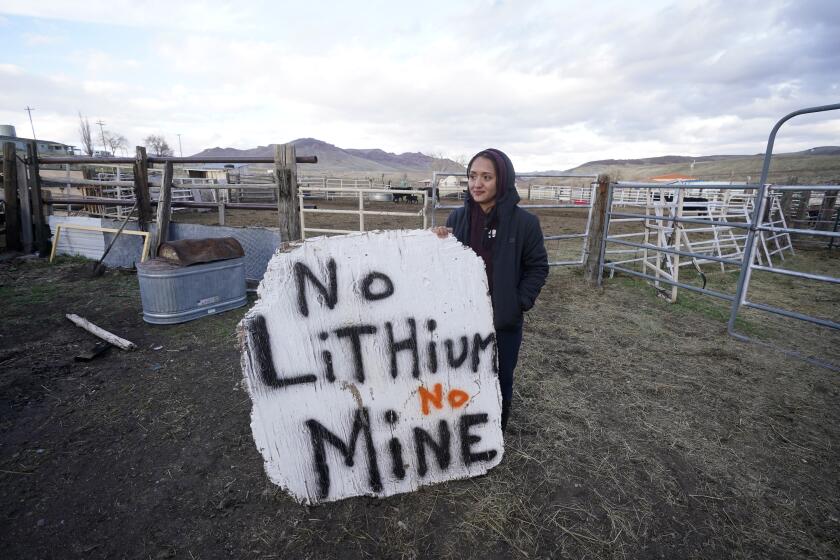California to return 40 acres in Inyo County — including historic hatchery — to Paiute people

- Share via
The California Department of Fish and Wildlife will be returning more than 40 acres of Inyo County land to the Indigenous Paiute people in early in 2024, including a decades-old fish hatchery located along historic Route 395.
The transfer of the entire Mt. Whitney Fish Hatchery property will be the department’s first-ever land return to a California tribe, according to Gov. Gavin Newsom’s office.
Newsom, who prompted the land transfer by supporting an effort to address local tribe issues, the Tribal Based Nature Solutions Program, described the move as “another milestone in partnership” with the state’s Indigenous peoples as both groups try to “heal from the past.”
“The Fort Independence Indian Community has lived on and stewarded this land since time immemorial — and in restoring their relationship with the land, not only will the land benefit, but so will all communities of this area and across the state,” Newsom said.
The hatchery was built in 1917 and was intended to supply lakes and rivers in Southern California with fresh fish. The hatchery was made of local granite and withstood a century of weathering. At one point, it was able to hold 3 million fingerlings that were used to stock ponds, other hatcheries and nearby lakes. The hatchery closed in 2008 due to heavy rain and fire damage. Black Rock Hatchery, in nearby Independence, is now responsible for stocking trout in the surrounding lakes and eastern Sierra Nevada range.
Carl Dahlberg, chairman of the Fort Independence Indian Community of Paiute Indians, said, “Water is an integral part of Paiute culture, history and social structure.” The tribe did not offer detailed plans for the property but said it intends to preserve the hatchery and the delicate ecosystem of the land and keep it open to the public.
A federal judge in Nevada deals legal setback to tribes trying to halt construction of lithium mine they say is near sacred site along Oregon border.
Dahlberg said the Paiute settled on the “sacred” Oak Creek banks for generations. There they cultivated native plants, such as the taboose and nahavita, staples of the Paiute diet.
“This property is inextricably entwined into who we are as Paiute people,” Dahlberg said.
Department of Fish and Wildlife Director Charlton H. Bonham called the transfer “momentous” and said it “aligns with many ambitions laid out for California by this administration.”
The Los Angeles area also saw a historic land return this year with the transfer of 12 acres of South Pasadena’s Monterey Hills to the Gabrielino Shoshone Nation of Southern California.
Anahuacalmecac International University Preparatory of North America purchased the land to establish the Chief Ya’anna Learning Village on the site.
Gabrielino Shoshone Nation Tribal Councilmember Jamie Rocha said the learning village is living testimony of why land restoration is important.
“It’s providing opportunities not only for indigenous youth and families to immerse themselves in their ancestral history and traditions,” Rocha said, “but [also] to educate the community to learn about the natural and Indigenous world around them.”
More to Read
Sign up for Essential California
The most important California stories and recommendations in your inbox every morning.
You may occasionally receive promotional content from the Los Angeles Times.















